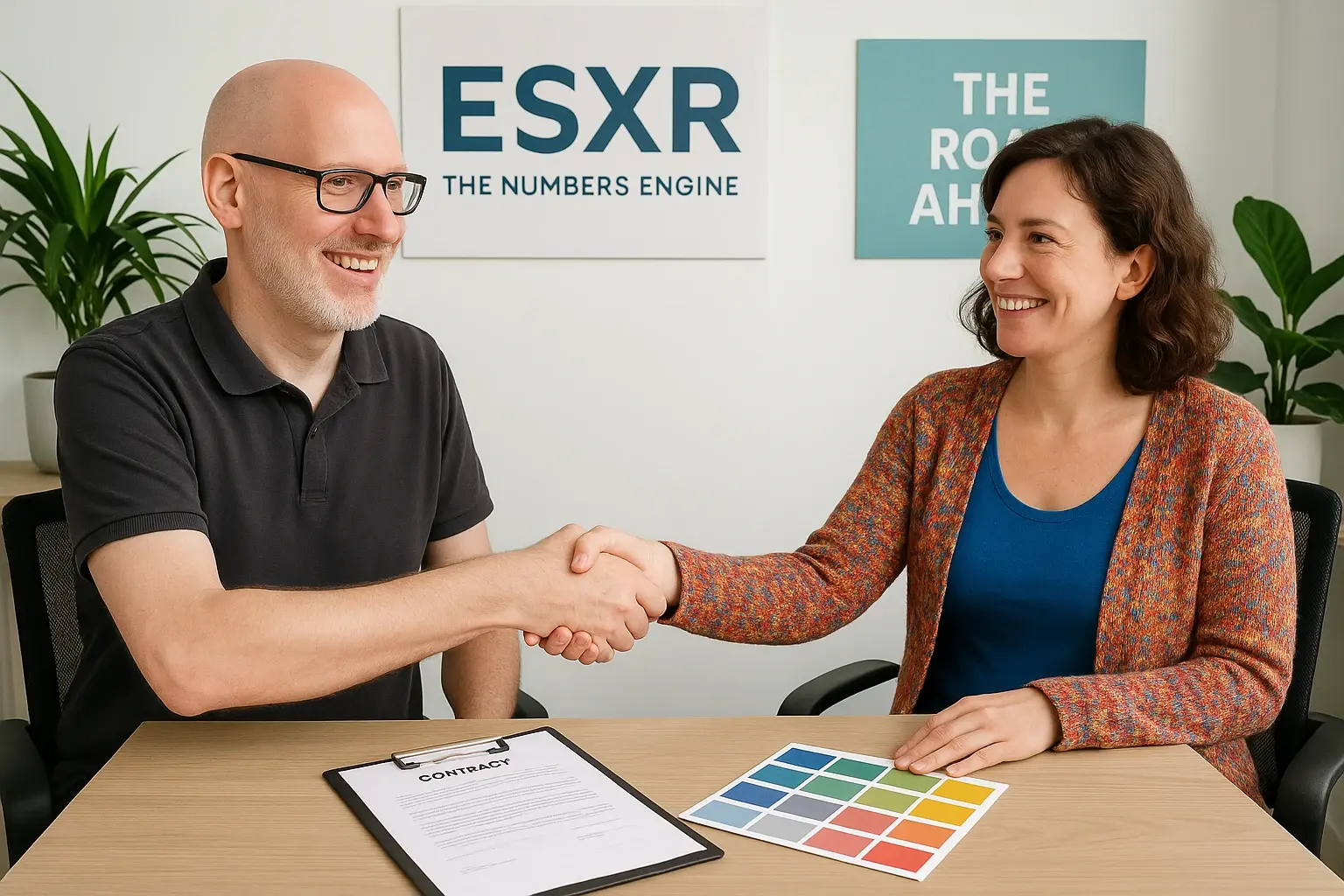If you run a creative business - whether it's a design studio, video production company or content agency - you’ve probably considered the usual suspects when choosing a business structure: sole trader, partnership or limited company… but what about an LLP?
A Limited Liability Partnership (LLP) is often overlooked, but it can be a great fit for certain creative businesses, especially those formed by two or more collaborators working together with a blend of creative and commercial flair.
Here’s a breakdown of the pros and cons to help you decide if an LLP could be a smart move for your agency or studio.
The Pros of Using an LLP for Your Creative Business
1. Limited Liability Protection
Just like a limited company, an LLP offers protection for its partners’ personal assets. If the business hits financial trouble, you’re typically only liable for the amount you’ve invested.
2. Flexible Profit Sharing
LLPs give you the freedom to divide profits however you like, not necessarily in proportion to ownership. This can be great when partners bring different levels of input or responsibility to the table.
3. Tax Transparency
LLPs are not taxed as a separate entity. Instead, profits are taxed in the hands of the individual partners. This avoids double taxation (unlike limited companies, where profits are subject to corporation tax and then salary and dividends are subject to income tax).
4. Ideal for Collaborative Ventures
If your creative business is a true partnership, say a designer and a strategist teaming up, an LLP formalises that relationship while preserving flexibility.
5. Perception of Seriousness
An LLP is a formal legal structure and must be registered with Companies House. This can add credibility when pitching to larger clients or applying for funding.
The Cons of Using an LLP
1. Self-Assessment for All Partners
Each partner will need to file a Self Assessment tax return, which can get fiddly, especially if you’re transitioning from sole trader to LLP or admitting new partners to the LLP at different times.
2. No Access to Corporation Tax Rates
LLPs don’t benefit from the lower rates of Corporation Tax. Once your profits rise above a certain level, it may be more tax-efficient to operate through a limited company instead.
3. Profit is Taxed Whether You Draw It or Not
With an LLP, you’re taxed on your share of the profits whether or not you actually take the money out of the business. This can be a headache for cash flow planning.
4. Less Familiar to Investors
If you’re looking to raise funding or offer equity in future, an LLP may be less attractive or more complicated than a limited company structure.
5. More Complex than a General Partnership
LLPs require formal registration and ongoing filing obligations with Companies House. If you're a small two-person outfit just testing the waters, a general partnership may be simpler in the short term.
When Is an LLP a Good Option for Creatives?
An LLP might be worth considering if:
- You’re starting a creative business with one or more partners and want limited liability protection.
- You want the flexibility to divide profits in a way that reflects contribution and not ownership percentages.
- You don’t plan to leave large profits in the business or reinvest (which is easier in a limited company).
- You want a legal structure that looks credible without jumping straight into company director duties.
Final Thoughts
An LLP can offer the best of both worlds: flexibility like a traditional partnership and protection like a limited company. But it’s not always the most tax-efficient option, especially as profits grow.
As with all things business-structure-related, the right answer depends on your personal circumstances, goals and plans for the future. If you're not sure which route to take, a short conversation with an accountant (preferably one who gets creative businesses) can make all the difference.
Need help?
Why not book a meeting with us to discuss your circumstances and see how we can help.
Found that content useful?
Why not sign up for more good stuff!!


